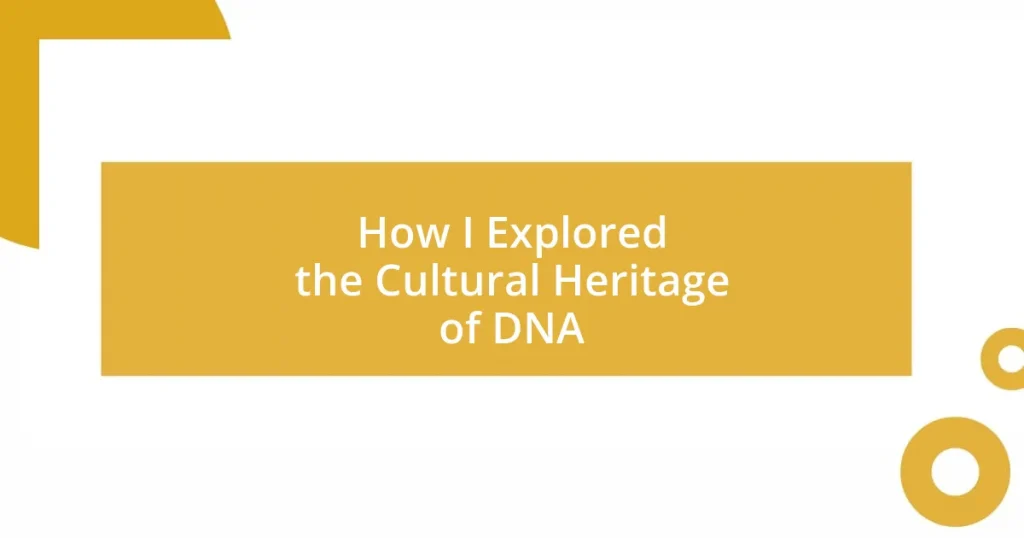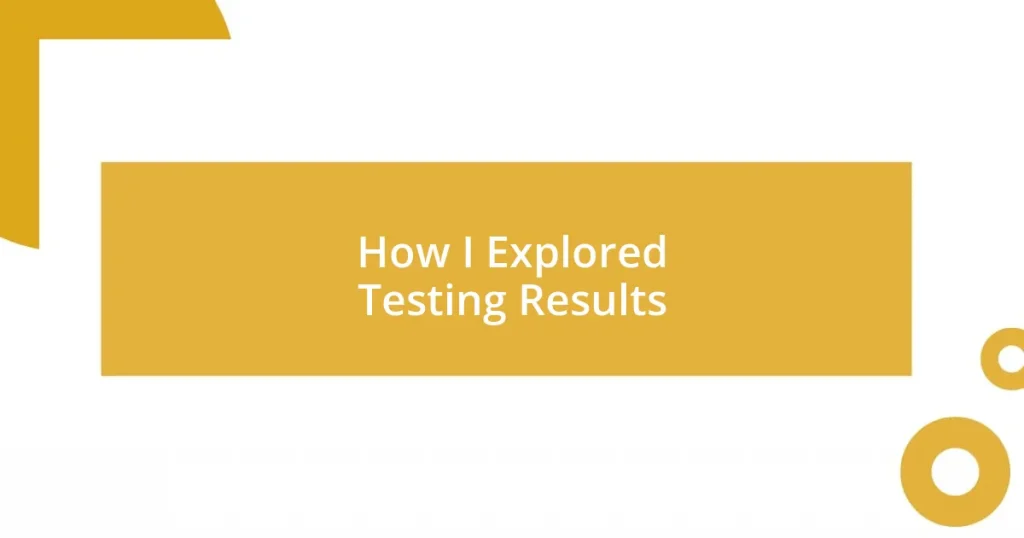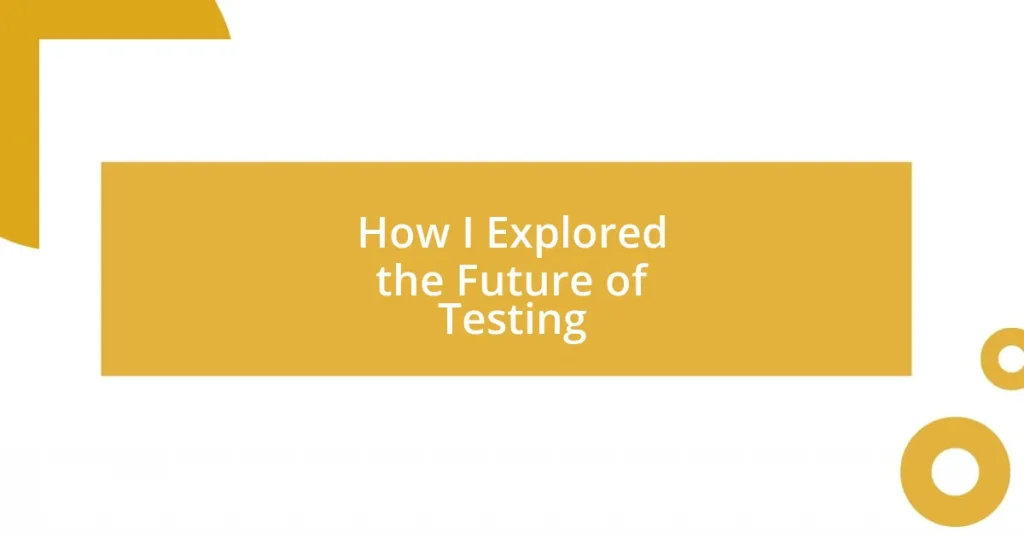Key takeaways:
- Personal motivation for genetic research stems from family health issues, driving a desire to prevent similar conditions.
- Hands-on experiences through volunteering and collaboration with experts enhance knowledge and skills in the field.
- Essential tools such as PCR machines, DNA sequencing, and bioinformatics are critical for conducting effective genetic research.
- Ethical considerations, public engagement, and sharing findings are vital to fostering trust and understanding in genetic research communities.
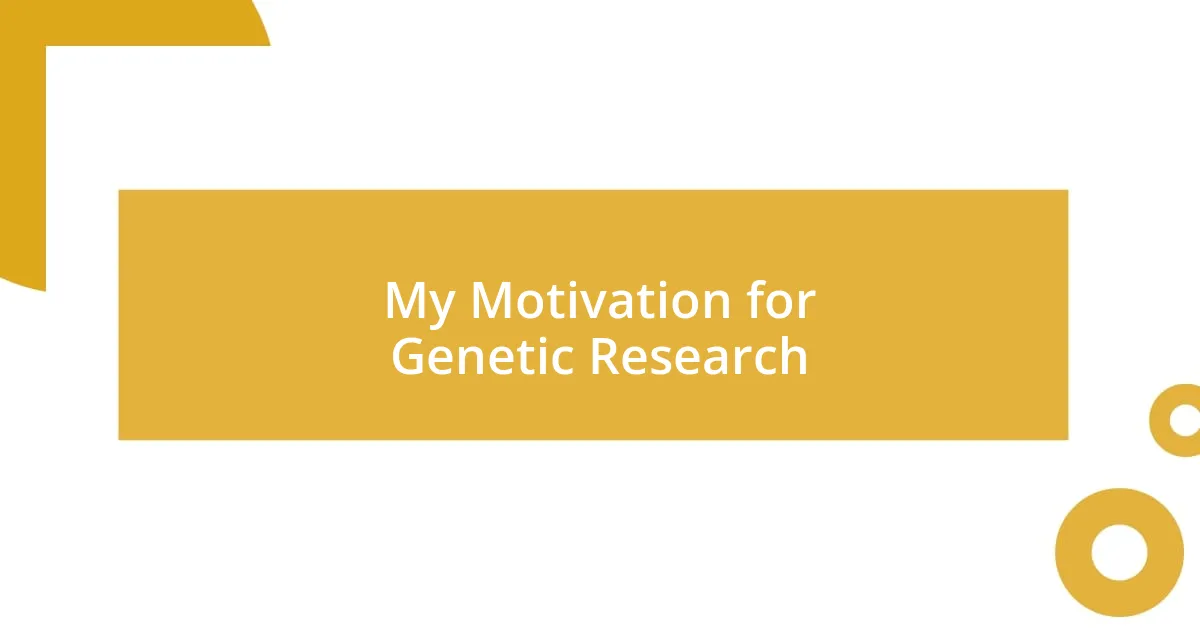
My Motivation for Genetic Research
My fascination with genetic research began in my teenage years when I learned about my family’s medical history. Hearing stories of my grandmother’s struggle with a hereditary condition made me wonder: could genetics hold the key to preventing similar issues in the future? This personal connection sparked my desire to dive deeper into the underlying mechanisms of life itself.
As I progressed through my studies, the sheer complexity of genes captivated me. I vividly remember the moment I first viewed a DNA double helix under a microscope; it felt like I was gazing at the very blueprint of existence. How could something so small hold such immense power over who we are? This realization made me passionate about decoding genetic mysteries and understanding how we can manipulate them for better health and well-being.
Through my journey, I’ve also witnessed how genetic research can bring hope to families facing dire medical challenges. I recall volunteering at a local clinic where patients were eager for information about their genetic predispositions. Seeing their relief when learning about advancements in gene therapy made me realize that this field isn’t just about science; it’s about people, their stories, and the potential to change lives for the better. That’s precisely why I am motivated to contribute to this incredible field.
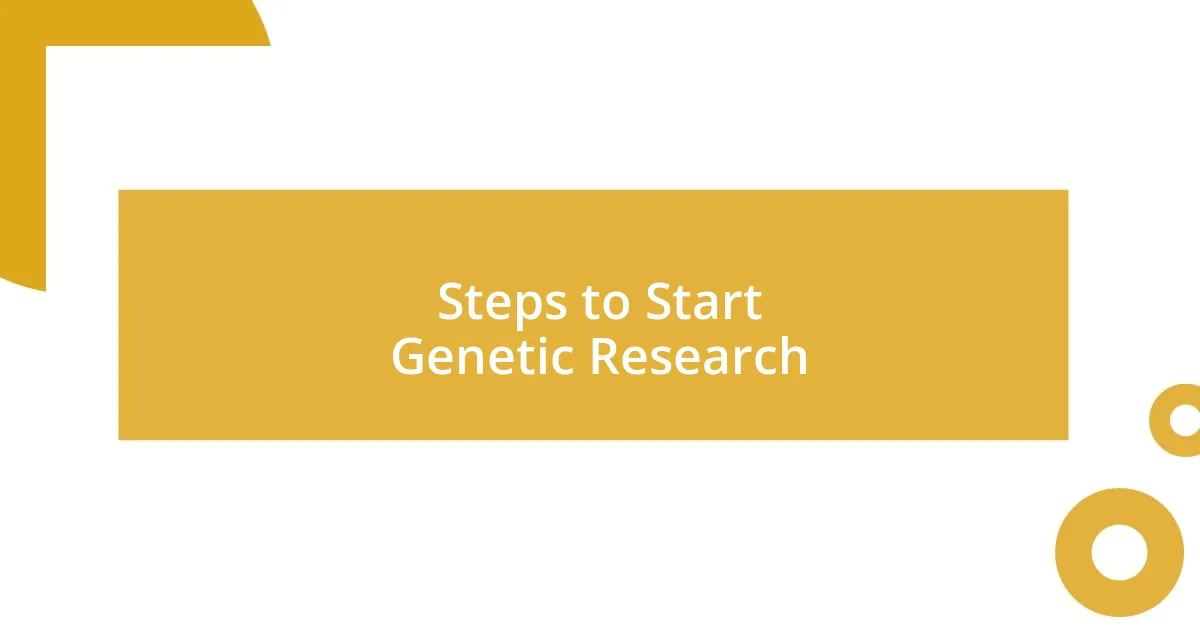
Steps to Start Genetic Research
To embark on a journey into genetic research, the first step is often grounding yourself in the basics. I vividly recall my initial dive into textbooks filled with terminologies that were surprisingly daunting yet fascinating. Understanding key concepts like DNA, genes, and genomics is essential before you delve into more complex studies. Moreover, connecting with mentors can make a world of difference; I found that engaging with professionals who had solid experience provided me with invaluable insights that shaped my path.
Here’s a simple roadmap to kickstart your genetic research journey:
- Educate Yourself: Start with foundational knowledge about genetic principles.
- Identify Your Interests: Pinpoint specific areas within genetics that intrigue you, whether it’s disease genetics or biotechnology.
- Find Mentors: Seek out faculty or industry professionals who can guide and support your research efforts.
- Engage in Research Projects: Volunteer or apply to participate in ongoing research to gain hands-on experience.
- Network: Attend workshops and conferences to broaden your connections within the genetic research community.
Embrace this journey with curiosity and enthusiasm. Those early steps can ignite a passion that fuels an entire career!
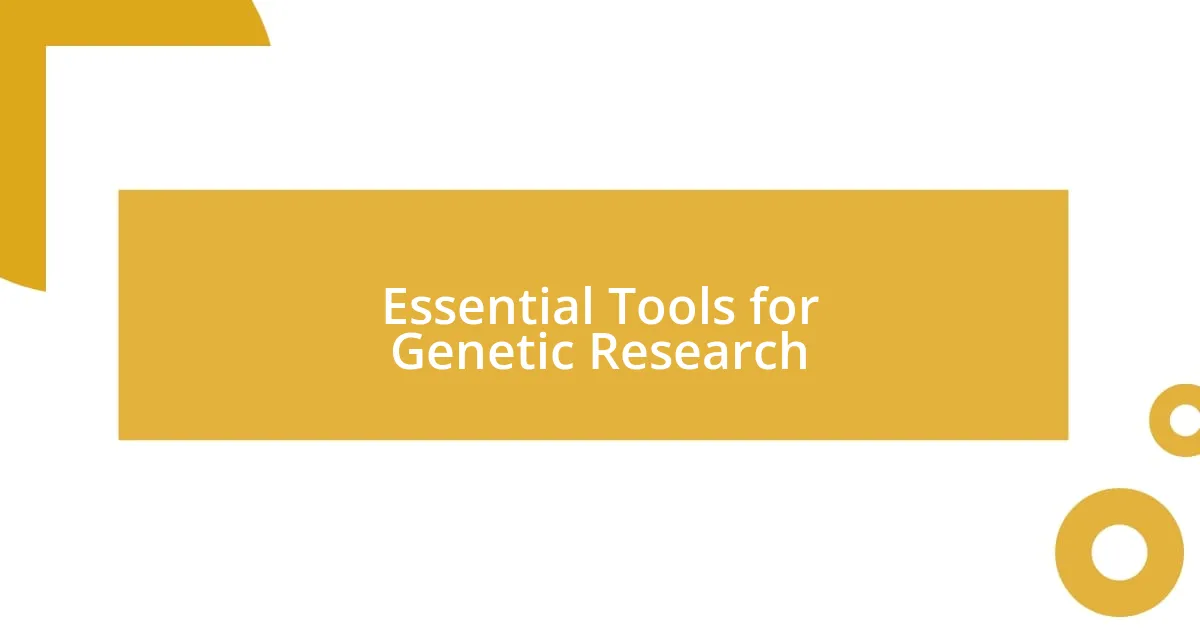
Essential Tools for Genetic Research
One of the most vital tools in genetic research is the PCR (Polymerase Chain Reaction) machine. I remember the first time I used one during a lab demonstration; the thrill of amplifying DNA samples felt like uncovering hidden treasures in the microscopic world. This technology allows researchers like me to create millions of copies of a specific DNA segment, making it easier to study genetic sequences and mutations. It’s fascinating how this tool can transform a tiny amount of DNA into something that can yield significant insight.
Another essential tool is DNA sequencing technology. I can still recall the awe I felt when I first sequenced a gene. The machine worked tirelessly, and watching data scroll in real-time was mesmerizing. This technology helps identify genetic variations by determining the order of nucleotides in a DNA molecule, providing a roadmap for understanding genetic disorders. It’s like having a key to unlock so many genetic secrets!
Finally, bioinformatics software has become indispensable in genetic research. I distinctly remember tackling my first sequence analysis project; it was challenging but rewarding. These tools help us handle the enormous amounts of data generated from sequencing, enabling us to interpret complex genetic information effectively. They serve as our guiding compass in the vast ocean of genetic data, allowing us to make meaningful connections that can lead to breakthroughs.
| Tool | Description |
|---|---|
| PCR Machine | Amplifies specific DNA sequences for detailed study. |
| DNA Sequencing Technology | Determines the order of nucleotides in DNA for identifying variations. |
| Bioinformatics Software | Analyzes and interprets genetic data, revealing insights and patterns. |
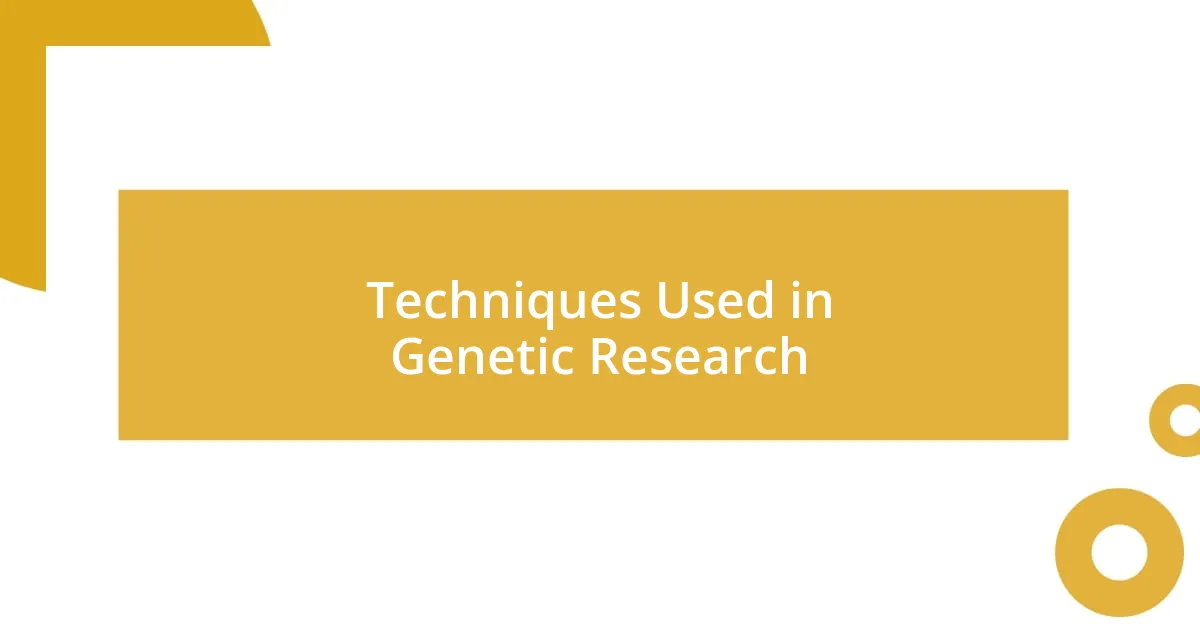
Techniques Used in Genetic Research
In my experience, techniques like CRISPR-Cas9 have revolutionized genetic research in astounding ways. I still recall the first seminar I attended focusing on this gene-editing tool; the potential it unlocked for precise modifications in the genome left me in awe. Imagine being able to pinpoint and edit specific genes like a word processor edits text—it’s both exhilarating and a bit intimidating.
Another technique that has significantly impacted my research is genome-wide association studies (GWAS). I remember analyzing the data for a GWAS project that aimed to uncover genetic factors related to a specific disease. The excitement of correlating variations in individuals’ genomes to clinical outcomes made me feel like a detective uncovering clues to solve a complex puzzle. This technique employs massive datasets to find connections between genetic variants and traits, making it an invaluable method in understanding hereditary conditions.
Lastly, I’ve found that utilizing transgenic animal models has provided profound insights into gene functions. During a project involving mice with altered genes, I was struck by how these tiny creatures could help shed light on human diseases. It’s remarkable to consider how altering a gene in an organism can help researchers like me unveil potential therapeutic targets for conditions that affect millions. Have you ever thought about the incredible implications of such research? It’s a powerful reminder of how interconnected life is, and how every little modification can lead to massive advancements in our understanding of genetics.
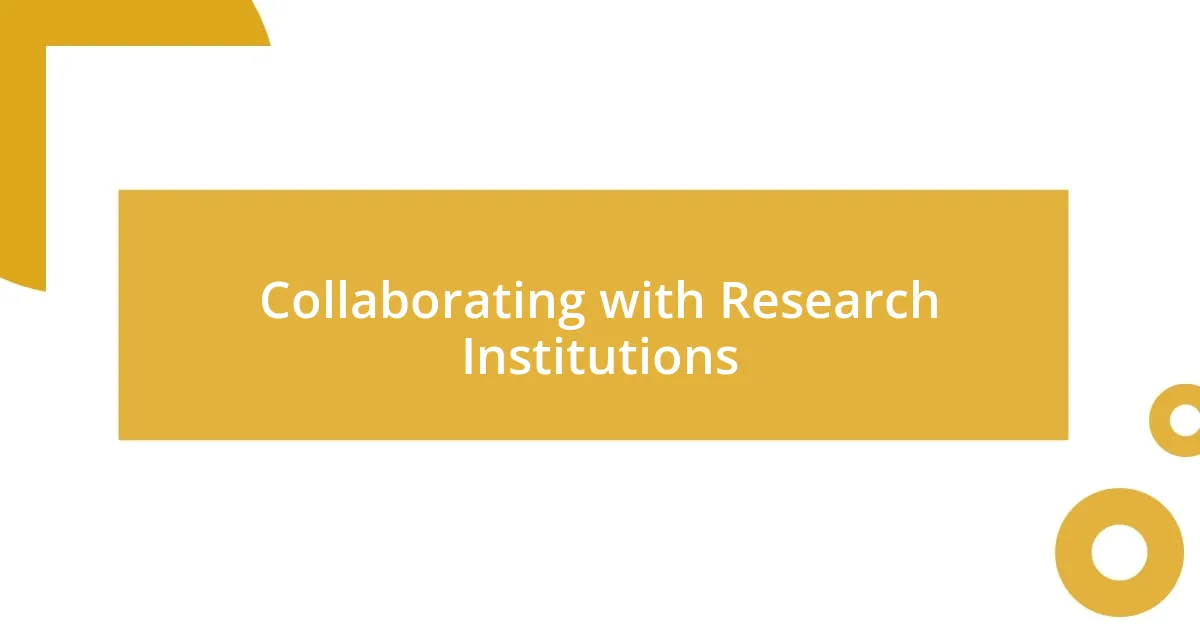
Collaborating with Research Institutions
Collaborating with research institutions has been a pivotal aspect of my journey in genetic research. I vividly recall my first meeting with a team from a renowned university, where the energy and enthusiasm were palpable. Sharing thoughts and insights with experts who are just as passionate about genetics as I am opened my eyes to new methodologies and perspectives that I hadn’t considered before.
One memorable project involved a partnership with a biotech firm to explore genetic markers for a rare disease. During the development phase, it was thrilling to brainstorm ideas with a diverse group of scientists, each contributing unique knowledge. This collaboration taught me how collective expertise can accelerate research. It was a profound realization—working together can lead to discoveries that benefit many, far beyond the capabilities of individual efforts. Isn’t it astonishing how collaboration can fuel innovation?
Another striking experience was attending joint workshops where we presented our findings. I remember the nerves I felt presenting my research alongside scientists who I greatly respected. Interacting with researchers from various backgrounds created a stimulating environment, where feedback transformed my approach and led to unexpected insights. It’s clear to me that the essence of genetic research thrives on collaboration, reminding us that no single person has all the answers. Isn’t it comforting to know that we have a community to support us in our quest for knowledge?
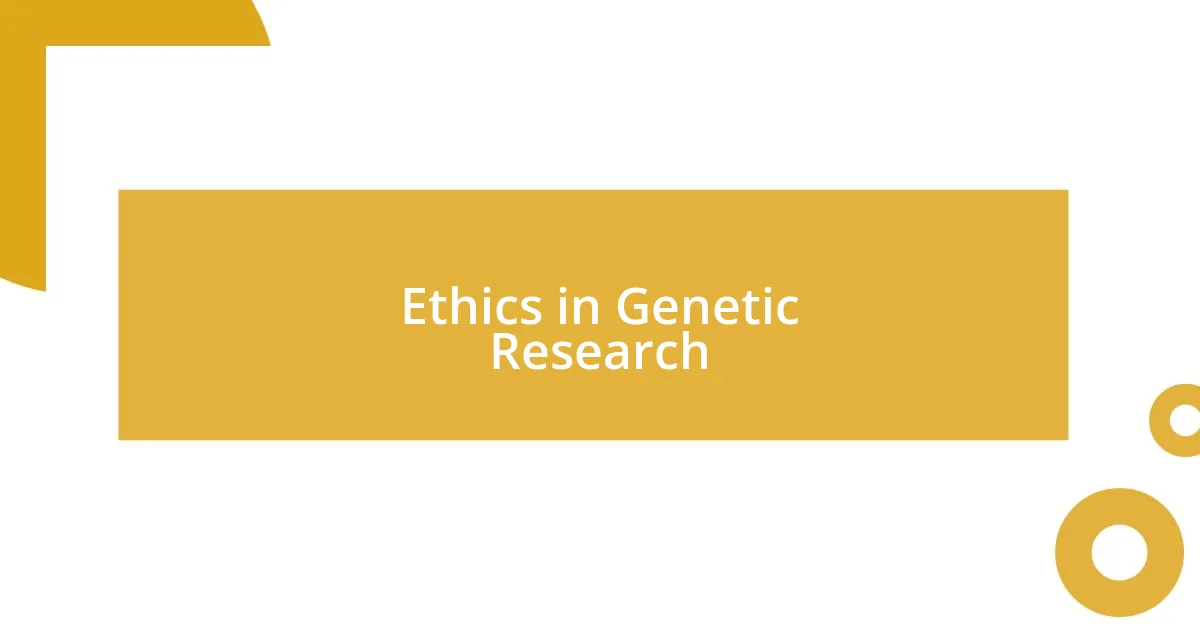
Ethics in Genetic Research
Understanding the ethical implications of genetic research is something I’ve grappled with since day one. I still remember a discussion I had during a graduate seminar about the moral responsibilities that come with gene editing. A classmate raised a compelling question: “If we can edit genes, should we?” That inquiry lingered with me, steering my thoughts toward the balance between innovation and potential harm.
One particularly eye-opening experience came during a project focused on genetic predisposition to certain diseases. As I analyzed data, I felt an overwhelming sense of responsibility. What if someone misused this information? It made me reflect on the importance of informed consent. Participants deserve to know exactly how their genetic data will be used. In my opinion, transparency with subjects can foster trust and openness, which are crucial for ethical progress.
I also think about the societal implications of genetic research. When I attended a conference on gene editing, a panelist discussed the concept of genetic ‘enhancements’ versus ‘therapeutics.’ That struck a chord with me. Where do we draw the line between treating diseases and creating ‘designer babies’? As researchers, we must tread carefully. These questions are not just academic; they shape the future of humanity. Isn’t it fascinating—and rather daunting—to think about how our choices today could echo for generations to come?
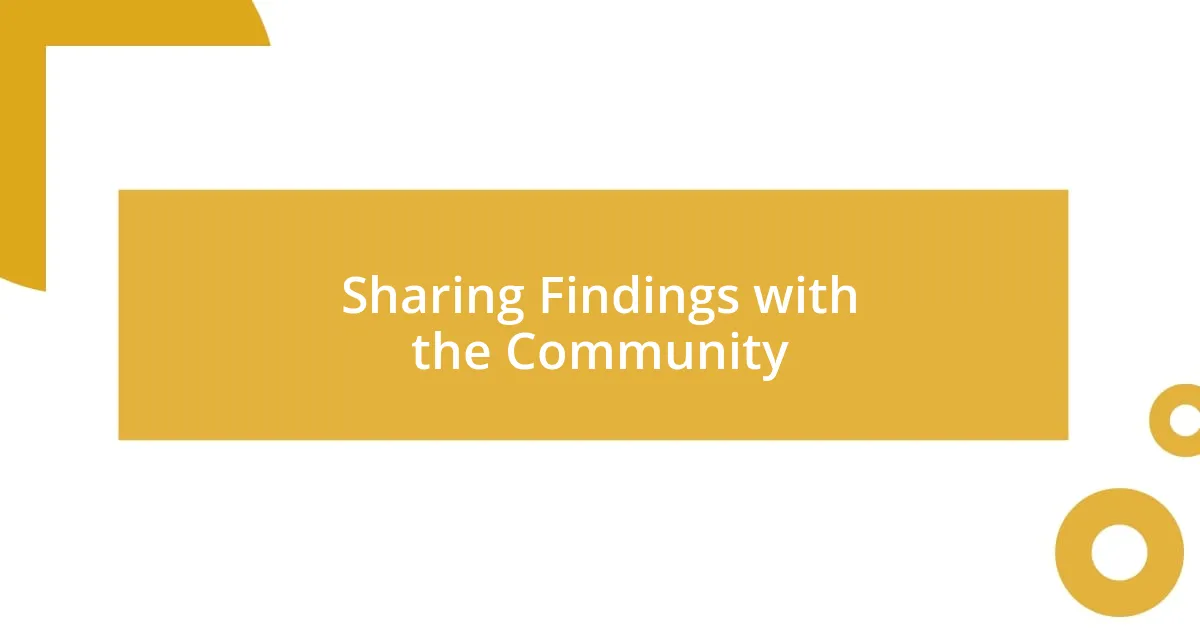
Sharing Findings with the Community
Sharing my findings with the community has always felt like an essential part of my role as a researcher. I can still recall the excitement of my first community science fair, where I presented my work on genetic variations in local plant species. Seeing the spark of curiosity in the eyes of children and adults alike made me realize how vital it is to bridge the gap between lab work and public understanding. Isn’t it refreshing to witness the enthusiasm of people who are eager to learn about science firsthand?
One experience that stands out was organizing a public seminar on the implications of genetics in health. I vividly remember sensing a mix of apprehension and excitement as I stepped onto the stage. Engaging with attendees who brought their questions—some of which challenged my views—enriched not only my understanding but also the broader dialogue within our community. It reassured me that discussing complex topics openly encourages a collaborative spirit. How often do we get the chance to reshape perceptions through simple conversation?
I’ve also found value in leveraging social media to share genetic research findings. After posting a brief summary of my latest study, I was pleasantly surprised by the influx of comments and questions from followers. This interaction turned into a lively discussion, transforming what could have been a dry academic report into a dynamic conversation. It highlighted the importance of making science accessible to everyone. Doesn’t it feel empowering to think we can ignite interest and passion for science in people just by sharing our stories?













